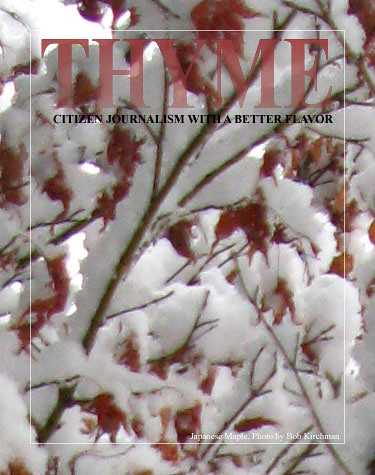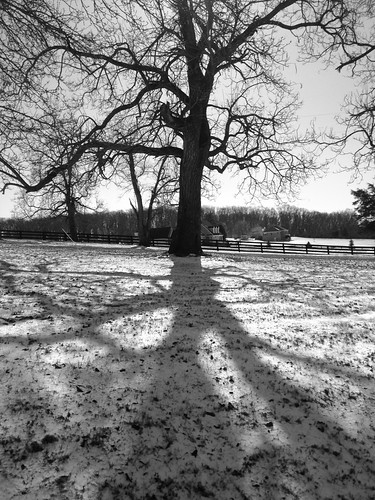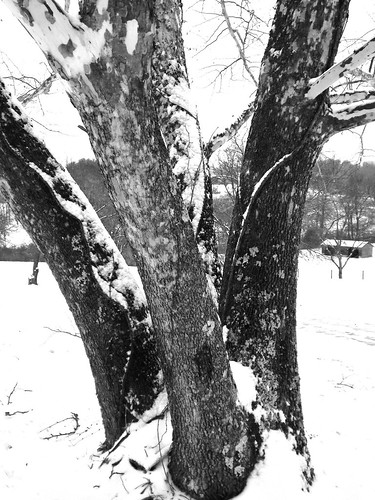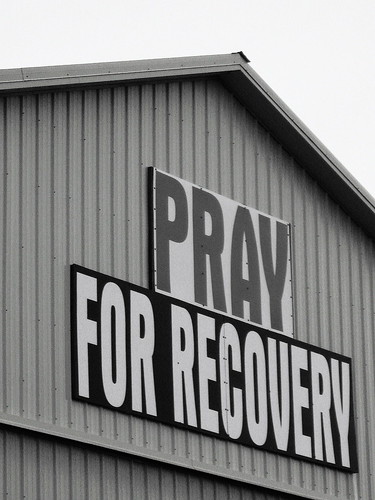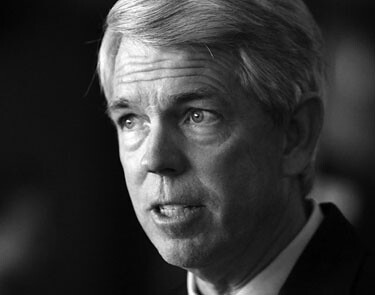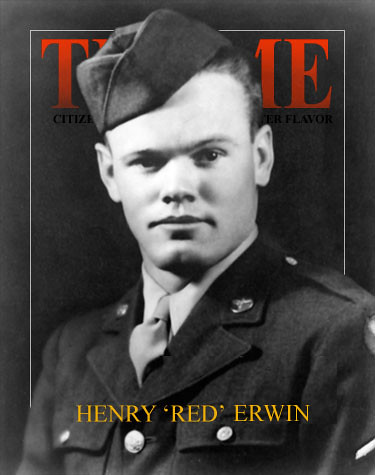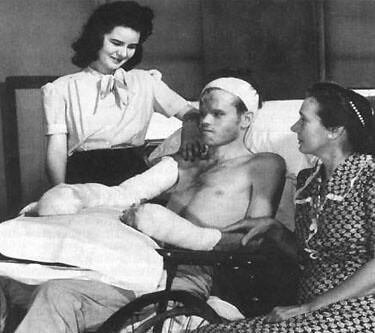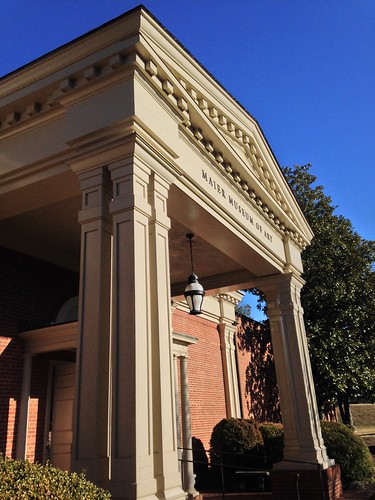Citizen Journalism with a Better Flavor
 Volume IX, Issue VII
The Challenge of Leadership
I
Volume IX, Issue VII
The Challenge of Leadership
It was just over a week ago that Jordan's
King Abdullah II, learning of the execution by terrorist group ISIS of one of his pilots, cut short a visit to the White House and returned to his own country to oversee the air attack on ISIS militants. The king, who is a trained pilot, was rumored to be manning one of the planes leading the attack. Though official sources denied it, the king does regularly participate in military operations and flies his own helicopter to remote parts of his kingdom. Many Americans lauded this quick and decisive response, especially in light of our own President's ambivalence. Certainly it was a breath of fresh air to see a leader take it to the terrorists rather than lecture us on the Crusades.
No doubt, America's tepid response begs the question of qualification when it comes to Commander-in-chief of the greatest military power in the world. Should we require a potential President to have military experience? It seems logical, but though it would have disqualified a number of inept Chief Executives, it would have also deprived us of the leadership of
Ronald Reagan! Someone opined to me recently that Reagan was so effective because he had been a Governor. As Chief Executive of a state, he would have already learned to build teams and draw expertise from the members who in many cases would have a far better understanding of the issues than he did. The commenter said that Governors, upon becoming President, had the ability, not only to work with a team, but often brought some of their best people with them to Washington.
That said, it might be better to look for a deeper level of leadership qualification. Yes, military leadership is an important part of it, but there is more. Also, it is important to remember that the principle of civilian oversight is a deterrent to military coups. Thus it falls on the citizens and the media to make informed judgements on candidates. An educated electorate would never put a largely untested and unvetted Junior Senator's finger anywhere near the red button. Is it reasonable to expect some resume from a potential candidate so that we may know something of his policies, world and domestic?
King Abdullah showed the proper resolve in dealing with terrorists, but it is worth noting that this warrior-king is unelected. He is known to govern by playing various factions in his kingdom against one another. He is a vocal critic of Jordan's neighbor Israel and is indeed more complex than the noble knight that he has come to be seen as. Speech in the Hashemite Kingdom is closely regulated. It is a crime to speak out against the crown. The
General Intelligence Department is highly feared. His kingdom has massive unemployment and as many as two thirds of the citizens are on the public dole.
To the West, another model of leadership is in play. A true representative government exists in neighboring Israel, where members of the Knesset are elected, as is the Prime Minister.
Binyamin Netanyahu serves at the pleasure of the voters, and he has a pretty impressive resume. When our own President was running with the Choom Gang, PM Netanyahu was serving with IDF Special Forces. He is a student of the world he must lead his people in. His own advertisement for his reelection says volumes about the subject of leadership in a lighthearted way.
Meet the 'Bibi Sitter'
Leadership: "Taking care of the children."
In the ad, the prime minister mentions the other choice for
"taking care of the children":
Isaac "Buji"
Herzog and
Tzipi Livni, the leaders of the left-wing political alliance in Israel's upcoming elections.
Buji? Our children will have to take care of him!" says the father, according to a translation.
By the time we get home, we won't have a house left," the mother says.
He'll even give away the carpet," (the Hebrew word for carpet can also be translated 'territory', so there is a double entendre here) the father jokes.
When the parents return from their night out, they greet Netanyahu with a
"shalom," which means
"peace."
Not unconditionally," Bibi responds.
The polls in Israel seem to be moving in Bibi and Likud's direction. Meanwhile, PM Netanyahu's government has received pushback from the White House after the Israeli prime minister accepted an invitation from House speaker
John Boehner to speak to Congress in March. What is illustrated well here is the true challenge of leadership... providing security for one's people and working to do so in a very dangerous world! The media, in turn,
MUST move away from its simplistic victim/oppressor narrative and provide leadership as well.
The Challenge of Leadership
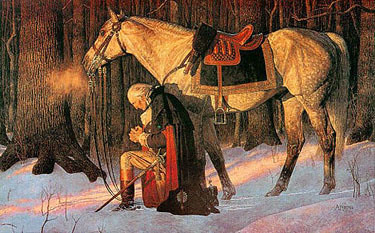 "The Prayer at Valley Forge" by Arnold Friberg is one of the best known paintings of the American Revolution. It depicts George Washington at Valley Forge.
N
"The Prayer at Valley Forge" by Arnold Friberg is one of the best known paintings of the American Revolution. It depicts George Washington at Valley Forge.
No doubt,
George Washington knew the challenge of leadership well. He began his career without a full college degree, but at the age of sixteen he obtained his surveyer's certificate from
The College of William and Mary. At an age when most modern young men are playing video games, he was out discovering and marking an actual country! He did do something akin to the actions of modern young men when he discreetly carved his initials into Rock Bridge County's natural wonder, Natural Bridge!
Washington is noted for his military career, but historian
James Hodges, Ph.D.gives us some unique insight into the man's character:
At the Battle of Brandywine in September 1777, a particularly brutal battle with much carnage on both sides, a fox terrier got lost between the lines. The little dog was captured by the Americans, who saw inscribed in his collar: “Property of General Howe.” Washington made sure the little dog was fed, cleaned and treated well. Under a flag of truce, Alexander Hamilton delivered the dog to General Howe, who had suffered great mental anguish thinking his little terrier had been lost to him forever.
Washington had been passionately fond of horses from early boyhood, and owned his first horse at 17. His mother, Mary Ball Washington, was a skilled horsewoman who taught young George how to train horses using only the gentlest of methods, and to never resort to any cruelty. Washington learned that harsh training methods were counter-productive, because horses treated with respect are eager to please their riders."
[1.]
At the second battle of Trenton, on January 2, 1777, it was clearly evident that Washington's great charger
Nelson returned the affection of his rider. Though cannon shells were bursting around them, man and horse stood firm. To those men Washington led into battle, they stood together as a symbol of strength. A soldier writes:
“As I crossed the bridge crowded with fellow soldiers, I brushed up against the boot of the man and flank of the horse. Both seemed to exude courage.”
After the great war was over, Washington indeed became President of the nation he had helped to create. His leadership skills would be tested in the days of the
Newburgh Conspiracy, where he would avert a military coup. The young nation's coffers were empty. The Continental Army had not been fully paid, and an uprising was brewing. There was talk of taking up arms against the Congress. Washington went to his officers and appealed to them in an emotional address on March 15, 1783.
Cool heads prevailed and Congress voted on a plan to pay the men. Interestingly, Washington distrusted the notion of political parties. He never aligned with one himself, though those around him were crafting the foundation for the two party system we have today. Perhaps the man's own sayings tell us volumes about his life and its motivations:
[2.]
It is impossible to rightly govern the world without G-d and Bible."
The propitious smiles of Heaven can never be expected on a nation that disregards the eternal rules of order and right which Heaven itself has ordained”
Make sure you are doing what G-d wants you to do---then do it with all your strength."
What students would learn in American schools above all is the religion of Jesus Christ.” "It is the duty of all Nations to acknowledge the providence of Almighty G-d, to obey his will, to be grateful for his benefits, and humbly to implore his protection and favors."
My mother was the most beautiful woman I ever saw. All I am I owe to my mother. I attribute my success in life to the moral, intellectual and physical education I received from her."
The General hopes and trusts that every officer and man will endeavor to live and act as becomes a Christian soldier defending the dearest rights and liberties of his country."
If to please the people, we offer what we ourselves disapprove, how can we afterwards defend our work? Let us raise a standard to which the wise and honest can repair. The rest is in the hands of G-d."
No people can be bound to acknowledge the Invisible Hand which conducts the affairs of men more than the people of the United States. Every step by which they have advanced to the character of an independent nation seems to have been distinguished by some token of providential agency"
I am sure that never was a people, who had more reason to acknowledge a Divine interposition in their affairs, than those of the United States; and I should be pained to believe that they have forgotten that agency, which was so often manifested during our Revolution, or that they failed to consider the omnipotence of that G-d who is alone able to protect them.”
Happiness and moral duty are inseparably connected.”
I earnestly pray that the Omnipotent Being who has not deserted the cause of America in the hour of its extremist hazard, will never yield so fair a heritage of freedom a prey to "Anarchy" or "Despotism"."
Stones of Remembrance
Remembering G-d's Mighty Works in Our Lives
 Angus Dei (Lamb of G-d), by Kristina Elaine Greer. [1.]
O
Angus Dei (Lamb of G-d), by Kristina Elaine Greer. [1.]
One of the greatest challenges to our Faith is our forgetfulness. Pastor
Seth Hankee preached our sermon one Sunday about how the people were instructed to remember the great things G-d had done for them. G-d separated the Jordan, as He had the Red Sea, for the people to walk across and gave them the following command:
And it came to pass, when all the people were clean passed over Jordan, that the Lord spake unto Joshua, saying, Take you twelve men out of the people, out of every tribe a man, And command ye them, saying, Take you hence out of the midst of Jordan, out of the place where the priests' feet stood firm, twelve stones, and ye shall carry them over with you, and leave them in the lodging place, where ye shall lodge this night.
Then Joshua called the twelve men, whom he had prepared of the children of Israel, out of every tribe a man: And Joshua said unto them, Pass over before the ark of the Lord your G-d into the midst of Jordan, and take you up every man of you a stone upon his shoulder, according unto the number of the tribes of the children of Israel: That this may be a sign among you, that when your children ask their fathers in time to come, saying, What mean ye by these stones?
Then ye shall answer them, That the waters of Jordan were cut off before the ark of the covenant of the Lord; when it passed over Jordan, the waters of Jordan were cut off: and these stones shall be for a memorial unto the children of Israel for ever. And the children of Israel did so as Joshua commanded, and took up twelve stones out of the midst of Jordan, as the Lord spake unto Joshua, according to the number of the tribes of the children of Israel, and carried them over with them unto the place where they lodged, and laid them down there.
And Joshua set up twelve stones in the midst of Jordan, in the place where the feet of the priests which bare the ark of the covenant stood: and they are there unto this day." -- Joshua 4:1-9
The Passover meal had already been instituted as testimony to G-d's redemption, so that a child would ask: "
Why is this Night Different from all Other Nights?" The story in a meal gave illustration to the miracle that had carried the people out of Egypt.
For the Christian, remembering deliverance from sin is the greatest miracle. In preparation for Easter, the Church observes Lent, reminding us of the deliverance Jesus brought us by way of the cross:
Ash Wednesday emphasizes two themes: our sinfulness before G-d and our human mortality. The service focuses on both themes, helping us to realize that both have been triumphed through the death and resurrection of Jesus Christ.
During some Ash Wednesday services, the minister will lightly rub the sign of the cross with ashes onto the foreheads of worshipers. The use of ashes as a sign of mortality and repentance has a long history in Jewish and Christian worship. Historically, ashes signified purification and sorrow for sins."-- —Adapted from The United Methodist Book of Worship
So it is very important to tell our stories of redemption, using reminders that will stir our minds to recall times when we were vividly aware of the Divine reaching out to touch our lives. Pastor Seth showed us a little children's book he had saved from his first house... on closer examination you could see the tire print on the page, a reminder of how when a car careened into his living room, it had narrowly missed hitting his wife and young child. Certainly G-d had protected his young family and that little book now told a much bigger story!
So now it is time to commit ourselves to the telling of the great stories, the ones that end in redemption and deliverance from our present condition. The Book of Judges follows the Book of Joshua and gives a sober warning:
"And Joshua the son of Nun, the servant of the Lord, died, being an hundred and ten years old.
And they buried him in the border of his inheritance in Timnathheres, in the mount of Ephraim, on the north side of the hill Gaash.
And also all that generation were gathered unto their fathers: and there arose another generation after them, which knew not the Lord, nor yet the works which he had done for Israel." -- Judges 2:8-10
The importance of stories and their redemptive narrative cannot be emphasized enough.
Passing the torch must always be a priority in every generation.
1. "I
did this with a sheet of 8.5"x11" computer paper some ashes from my fireplace and canola oil. I mixed up some of the oil and ashes similar to how they are mixed on Ash Wednesday and painted them on the paper in a cross then sprinkled the rest of the dry ashes on top. I then found one of the music compositions for "Agnus Dei," Latin for Lamb of G-d, on www.hymnary.org [click to read] and cut out strictly the music overlaying it and changing the opacity over the picture of my ash cross. Then I added the Latin words meaning, "Lamb of G-d, who takes away the sins of the world, have mercy upon us,
grant us peace." This piece is to remind us that we are sinners made up of dust, but G-d loved us so much, he took mercy on us sending His son as a sacrificial lamb, to take away our sins. If we believe and accept
his sacrifice we are granted this eternal peace and life with Him. May the Lord bless you all and lead you closer to Him during this season of Lent, looking forward to the promise of Easter. Amen." -- Kristina Elaine Greer
Ash Wednesday and Lent
A Time For Reflection and Redirection
 Sunset in the Blue Ridge Mountains.
Guest Post by M. K. Hand
Y
Sunset in the Blue Ridge Mountains.
Guest Post by M. K. Hand
You might notice people walking around with cross-shaped smudges on their foreheads. There is no
"mystical" attribute assigned to this practice. The ashes are a physical reminder of our need for repentance, and a symbol of the dependency of humans on G-d's mercy through Jesus Christ.
Why ashes? The Bible speaks of man returning to dust and ashes (from whence he came), and Job smeared himself with dust and ashes as a symbol of atonement. Also, in the Old Testament, animals were sacrificed to G-d for atonement, and they were burnt to ashes. When Jesus came as a living sacrifice, the Law was no longer applicable, and animal sacrifices were no longer needed for atonement. Jesus was the final sacrifice...He ushered us into a time of Grace through Faith, once and for all.
Lent, the season leading up to Easter, is a time of increased attention to charity (love), prayer, and fasting for Christians. It is a special time to reflect, repent and rejoice. It prepares our hearts to fully take in and celebrate the sacrifice, atonement, and grace made possible by Jesus' crucifixion, and the restoration of our relationship, broken by our sin, with the Father. Many people fast, give up something meaningful to them, or turn away from a sin that has taken hold of their life; fasting is also a way to identify with the sacrifice made by Jesus at Calvary. May this time leading up to Easter be a time of reflection, repentance, and rejoicing for you!
Therefore also now, saith the Lord, turn ye even to me with all your heart, and with fasting, and with weeping, and with mourning: And rend your heart, and not your garments, and turn unto the Lord your G-d: for he is gracious and merciful, slow to anger, and of great kindness, and repenteth him of the evil."
~ Joel 2:12-13

